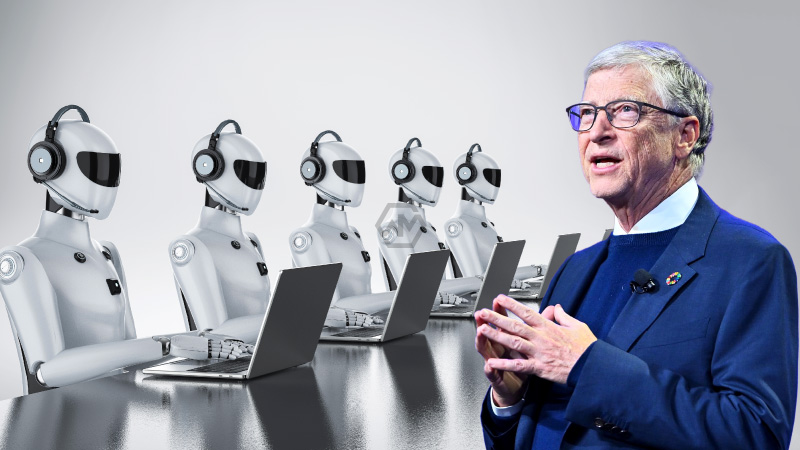- Bill Gates predicts AI will replace humans in most industries, leaving only select careers untouched.
- Liu Cixin foresees AI-generated sci-fi surpassing human authors within 10–20 years.
- China’s sci-fi industry thrives, integrating culture and technology into its storytelling.
AI is reshaping the workforce, with Bill Gates predicting that most jobs will become obsolete due to automation. He highlights fields like health care and education as areas where AI could drastically improve accessibility and efficiency.
Liu Cixin, a leading sci-fi writer, envisions a future where AI tailors books to individual preferences, potentially surpassing human authors in quality.
AI and the Future of Human Creativity
AI’s rapid advancements are sparking concerns about job security, with Bill Gates suggesting that automation will handle most industries. While AI-driven efficiencies could solve major global issues, they also pose challenges for employment and the workforce. Gates’ perspective underscores the need for humans to redefine their roles in an increasingly automated world.
Liu Cixin’s predictions about AI-generated literature suggest a future where storytelling becomes hyper-personalized. Readers could request custom novels, reshaping how stories are consumed. While AI can process vast amounts of data, Liu warns that true creativity still requires human insight and personal experience.
China’s booming sci-fi industry demonstrates how technological progress fuels new storytelling opportunities. Manned spaceflight, AI advancements, and quantum communication serve as inspiration for narratives that merge science with deep cultural perspectives. Unlike AI-generated content, these stories embody philosophical reflections that machines struggle to replicate.
Despite AI’s potential in creative fields, industry experts believe originality and human emotion will remain invaluable. As AI-generated content becomes more prevalent, authentic human stories will gain new significance, offering depth and meaning beyond algorithmic production.
While AI is transforming industries, it does not signal the end of human creativity. Instead, it challenges creators to innovate and infuse their work with personal experiences, ensuring that uniquely human storytelling remains relevant.
“The rise of AI is not the end of literature, but rather an expansion of creative dimensions.” — Chen Tao



